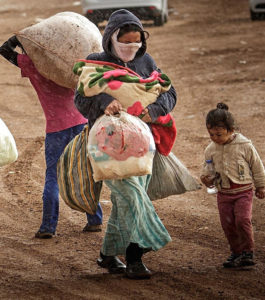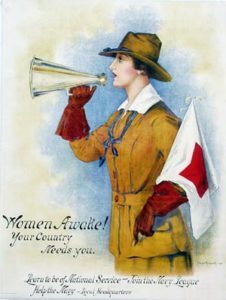 I’ve written about the danger of sexual assault for women that work in aid and development, including PeaceCorps members (see the end of this blog for links). But, as I’ve researched, written and published these pieces, I’ve thought about women living in those developing countries, and how those local women are at even greater risk of sexual assault by the foreigners coming to their communities, either military, private enterprise or humanitarian workers. They are at MUCH greater risk, in fact. The Oxfam scandal reminds me that I’m overdue to focus on this.
I’ve written about the danger of sexual assault for women that work in aid and development, including PeaceCorps members (see the end of this blog for links). But, as I’ve researched, written and published these pieces, I’ve thought about women living in those developing countries, and how those local women are at even greater risk of sexual assault by the foreigners coming to their communities, either military, private enterprise or humanitarian workers. They are at MUCH greater risk, in fact. The Oxfam scandal reminds me that I’m overdue to focus on this.
If case you aren’t aware: earlier in February, The London Times reported that the U.K.-based agency Oxfam covered up an internal inquiry finding that the country director for the African country of Chad, Roland van Hauwermeiren, and members of his staff, had paid prostitutes in Chad for sex. Similar accusations emerged after van Hauwermeiren and his team were reassigned to Haiti following the devastating 2010 earthquake there. In an open letter responding to the allegations, van Hauwemeiren, a 68-year-old Dutch citizen, denied the allegations of sexual exploitation, saying he had “intimate relations” with a woman in Haiti during his tenure there, but that she was “not a prostitute. I never gave her money.”
Can local women in a developing country that has been devastated by war, corruption, natural disaster and/or poverty have consensual sex with foreign military members, business people or aid workers? Can a refugee? I say no. It’s impossible for someone in such a vulnerable position economically or socially to freely consent to sex with someone with that much power.
About 20 years ago, there was an online community called the Aid Workers Network. I was one of the facilitators of that network, and we had some really incredible discussions about working in aid and development. It was through that network that I read an article about a humanitarian worker seeing his boss leaving a brothel, and it was the first time I had ever considered issues around aid workers and sex with local people – or even six with each other.
I’ve worked with international aid agencies since 2001, including in some developing countries, and in my briefings for working in those countries and with local people, people who are in highly-vulnerable positions because of their dire economic situation and because of the insecurity of their situation, I never once heard a caution about sexual relationships with local people, about power dynamics that many would say render it impossible to call a sexual relationship with a local woman and a foreign man “consensual.”
Sara Callaway, co-founder of Women of Colour Global Women’s Strike, noted in this article in The Guardian: “When women are starving and living in rubble, it is not prostitution. It is rape – what choice do women have?”
Other than on the now-defunct Aid Workers Network, I never once witnessed this as a topic of discussion among aid workers, including at the United Nations. I never felt that I was in a position of stability in terms of my job to dare to ask questions of human resources managers or anyone else, for that matter, regarding being on guard regarding sexual exploitation of local people by aid staff. I now so regret not asking the questions I wanted to, even if it would have jeopardized my career at the UN.
Here’s what I think needs to happen to keep local women safe and to change the culture at oh-so-many field offices regarding the safety of local women in their interactions with international staff:
- Aid agencies MUST have written policies regarding international staff engaging in romantic or sexual relationships with local people or international staff that are subordinate to them, and these policies should be communicated when a person is hired and re-iterated regularly to ensure that no one can say, “Oh, I didn’t know!”
- Visiting a prostitute in a developing country for sex, rather than as a part of official work with sex workers to ensure their basic rights, protect their health, etc., should be grounds for dismissal of international staff, as a violation of that agency’s written code of conduct. It should not matter if money was exchanged or not. Aid agencies cannot say they worry about the rights of women and then ignore that staff are visiting prostitutes for sex in developing countries. They must also consider what their policy will be regarding local male staff and their interactions with sex workers – this isn’t just about appropriateness; it’s also about abuse of power.
- Aid agencies should publicly report how many accounts of sexual misconduct they investigate each year, the number of people dismissed each year for sexual harassment or abuse, and the processes they have for investigating and dealing with reports of sexual harassment or abuse. No need for names of people nor even of the countries where incidents happen – naming the countries where such happens could, in fact, endanger humanitarian workers in those countries.
- Aid agencies should also say, in writing, publicly, if they are willing to rehire or reassign a staff member or contractor they suspect to have violated their policies regarding sexual misconduct or abuse, and what their policy is for providing a reference to such staff people regarding jobs at other agencies.
Oh, but what if an international aid worker truly falls in love with a local person? Then the aid worker can quit their job, get out of that power position, and get on a more level playing field with the love of their life.
There has never been a greater need for aid agencies. There has never been a greater need for foreign money to support those aid agencies. Aid agencies have prevented wars – no, not all of them, obviously. Aid agencies prevent genocides – no, not all of them, obviously. But without aid agencies, the amount of chaos happening in the world would be untenable. Aid agency scandals provide perfect scenarios for isolationists in government to cut foreign aid even further. Humanity, nor the environment, can survive without aid agencies – and they cannot survive if they do not address this very real, serious issue.
Related blogs:
- Fearing your own colleagues in the field
- Evaluation Re: Peace Corps’ Sexual Assault Risk Reduction & Response Program
- Peace Corps Volunteer Protection Act of 2011 (for Kate Puzey)
- Survey for Returned Peace Corps Volunteers Re: Safety
- Peace Corps must better address assaults and murders of members
- Have you enabled a Larry Nassar?
- Creating a Speak-up Culture in the Workplace
- Why don’t they tell? Would they at your org?
- Keeping volunteers safe – & keeping everyone safe with volunteers
- Screening applicants by reviewing their online activities

 Over the years, more than one person observed Jerry Sandusky, head of the nonprofit organization The Second Mile and former Penn State defensive coordinator, having sex with boys. Yet none of those people called the police, and none of the people in authority that they told about what they saw called police.
Over the years, more than one person observed Jerry Sandusky, head of the nonprofit organization The Second Mile and former Penn State defensive coordinator, having sex with boys. Yet none of those people called the police, and none of the people in authority that they told about what they saw called police.